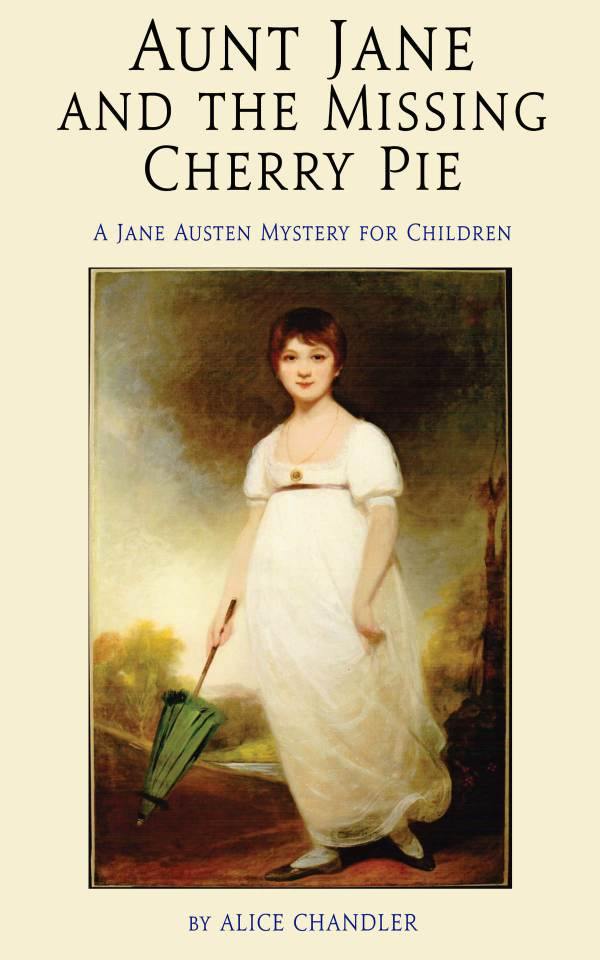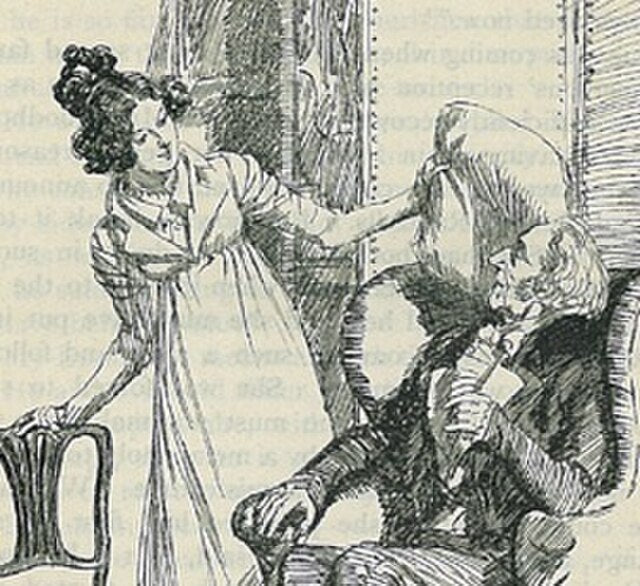The effects of the family’s misfortunes on Jane Austen's death
By Caroline Kerr Taylor

2017 marks the 200th anniversary of Jane Austen’s death. She is one of the world’s most popular literary giants. It was a tragic loss that she died at 41, just as her star was gaining traction in the literary firmaments. We will never know for sure the exact cause of her death. The medical community has conjectured Addison’s disease, an adrenal insufficiency, or some form of cancer such as lymphoma. Any one of these diseases would have been exacerbated by long periods of extreme stress. Though she enjoyed a good deal of literary success in her last years, there is much evidence that they were also filled with insecurity and worry.
Family was the centre of Jane’s world. As she never married, she lived her entire life within the family circle. George Austen, Jane’s father, was a member of the clergy and Oxford educated. Their family was part of local genteel society; however, financially they were barely inside the bounds of polite society. Women of her class did not work. Jane and her sister Cassandra, as unmarried women, continued to live with their parents. While Jane’s closest and deepest connection was to her only sister Cassandra, she also enjoyed a close relationship with her brothers. As the boys grew up they left home, had careers, and raised families of their own. They did, however, keep a close extended family connection with visits between families, and corresponding when apart. George Austen retired in 1800 and gave the Steventon parish living to their oldest son James. The Austens, along with their daughters, then moved to Bath. Here they rented various temporary accommodations. After living in a large house in the country it was not an easy adjustment.

Mr. Austen died suddenly in 1805, leaving his wife and daughters with a meagre income. Mr. Austen’s ministerial annuity ceased and the church offered no help to surviving spouses or children. The brothers stepped in to help. James, Henry and Frank gave £50 a year. Edward gave another £100. Later, after years of moving between Bath lodgings and spending time with various members of the family, the Austen women, along with dear friend Martha Lloyd, were offered a home of their own. This came about as a result of a common 19th century practice. If a wealthy couple had no heirs they often adopted a child from extended family so that their property would stay within the family and that their name would continue.
Edward Austen, Jane’s third brother, was adopted by cousins Thomas and Catherine Knight. As difficult as the decision was, Rev. and Mrs. Austen saw this as an enormous opportunity for their son. Edward inherited two large estates, one in Kent and one in Hampshire. Chawton Cottage on his Hampshire estate was given rent free to the Austen women. Imagine their delight, after years of packing and unpacking, in having a permanent place to call home. The brothers continued their financial help to their mother and sisters. The years at Chawton were Jane’s most productive writing years. She re-worked Sense and Sensibility, Pride and Prejudice and Northanger Abbey. She wrote Mansfield Park, Emma and Persuasion. Austen gifted first copies of her books to her siblings and looked to family for their comments and responses.

It’s unfortunate that during the last three years of her life her beloved family began to experience serious financial problems. The first financial difficulty occurred when Edward Austen-Knight was served with a court order in October of 1814 by the Hinton-Baverstock family of Chawton Lodge in Hampshire. It stated that the deed disentailing Chawton estate at the beginning of the 19th century had been incorrectly drawn up. They claimed to be rightful heirs to the Hampshire properties. If they won their case Edward would have lost two-thirds of his properties and wealth. It also meant the Austen women would lose their home. Living for years under the cloud of possibly losing their home would have caused a great deal of emotional turmoil. The fact that the Hinton-Baverstocks were neighbors who lived nearby also created an awkward social situation. In the end, Edward gave them £15,000 to drop their law suit. It was not until 1818, after Jane’s death, that the case was finally settled.
Another distressing sequence of events affected the extended Austen family. Henry became a banker and army agent after serving in the Oxford militia. He did very well for a number of years. However, with the end of the Napoleonic wars the post-war economy was on a downward spiral. The industries related to war were no longer needed. Fewer soldiers meant that paymaster agents like Henry saw drastic reductions in their income. The regimental payroll handled by Austen & Co. fell from £112,000 in 1813 to £63,000 in 1814 and finally to £34,000 in 1815. Many of the bank loans became uncollectable. All of this worked to undermine Henry’s banks. The Alton branch collapsed at the end of 1815. His army agency and the London bank failed in March 1816. Henry’s bankruptcy devastated the entire Austen clan. Henry lost everything, but other family members also suffered losses. The largest were those of Uncle Leigh-Perrot and Edward who had put up £10,000 and £15,000 respectively as guarantees. Frank and James also lost their investments. Frank, as a navy man, was already on half pay since the war had ended. Both he and Henry were no longer able to give their mother and sisters the £50 per year toward their living expenses. While Jane had most of her earnings in the Navy Fives savings, she lost a small amount, £13. The Austen women still had their home although there was the constant worry as the Hinton-Baverstock law suit was ongoing.

Henry had a special relationship with Jane. While Cassandra was the first to be privy to her novels as they were being written, it was Henry who acted as liaison with her publishers. The 19th century was a man’s world. It was Henry who found her publishers and who fronted the money on the first books taken on consignment. Jane spent long periods of time at Henry’s London home as she corrected the printed pages from her publisher before going to press. With the bankruptcies Henry lost his London home and Jane had to have the proofs sent to Chawton for correction. These financial woes would have caused great distress for all the members of the tight-knit family. While Henry’s business world was collapsing, Charles, the youngest Austen sibling, was in difficulty of his own. Charles, like Frank, was a career navy man. When the Napoleonic wars ended, Charles, as Captain of the Phoenix, was assigned to rid the Greek Archipelago of pirates. In late February 1816 during bad weather his ship was damaged beyond repair near Smyrna (current day Izmir). There was no loss of life and the ship’s goods were rescued. Charles, however, was court-martialed. The news of the shipwreck would have reached Chawton about the time of Henry’s bankruptcies. In April, Charles was acquitted. The blame fell on the Greek pilots who were guiding the ship at the time. Although his name was cleared, the fact that he’d lost a ship worked against him. He was not given another command for ten years. With a growing family he struggled financially to make ends meet. The extended family including Jane would have been deeply concerned for Charles. He loved his mother and sisters but was never able to help them monetarily as he fought against poverty most of his adult life.
A final anxious chapter of these last three years was the death of Mrs. Austen’s brother James Leigh-Perrot in March 1817. Like her brother Edward, Jane’s uncle had inherited a large house and substantial sums of money from distant relatives without children. The Leigh-Perrots did enjoy the Austen children and had spoken of including them in their wills. Mrs. Austen had been counting on some financial support from her brother upon his death. Unfortunately, he left everything to his wife for her lifetime. Mrs. Austen was deeply distressed by this news and Jane had a relapse in her health when she learned of the setback. These events coming so closely on one another would have caused deep anxiety. These family circumstances would have created a constant and unrelenting sense of insecurity. Thus it is reasonable to conjecture that Jane’s illness and her early death may have been exacerbated by the family’s various misfortunes, severely impacting her physical and emotional well-being.
Caroline Kerr Taylor previously contributed to the online magazine with the article Jane Austen’s Fame and Fortune: Now and Then. She authored many educational work books as an editor at Creative Teaching Press, Cypress, California. After some years living abroad in New Zealand, she now lives in Newport Beach, California, and enjoys freelance writing.
Enjoyed this article? If you don't want to miss a beat when it comes to Jane Austen, make sure you are signed up to the Jane Austen newsletter for exclusive updates and discounts from our Online Gift Shop.



2 comments
After reading Miss Taylor’s article I can hardly hold my breath. I’ve read of
of Miss Austens’ life in the past; but not so outlined as the above. What a tragedy for one that was so prolific. I suppose that was the way of life for them at that time.
I must tell you, that I just came back from the Utah Shakespeare Festival. We saw “Emma”
in Cedar City. What a delight. Miss Austen would be proud!!
Anonymous
The timing of this interesting article is appropriate for me, as I had just done a study for our local JASNA group of the last years of Jane’s life. I too was so struck by this concentration of financial anxieties in Jane’s life during her last 18 months. I had never quite realized this before, and am glad this aspect is getting a wider audience. One fact I had missed was Charles’ court-martial so I am pleased to learn this additional fact. I really feel that these worries did hasten Jane’s decline,, and perhaps her amazing output (Persuasion, NA’s revision and the unfinished Sandition) towards the end were her hope to help shore up the family’s and her own depleted finances.
Anonymous
Leave a comment
This site is protected by hCaptcha and the hCaptcha Privacy Policy and Terms of Service apply.